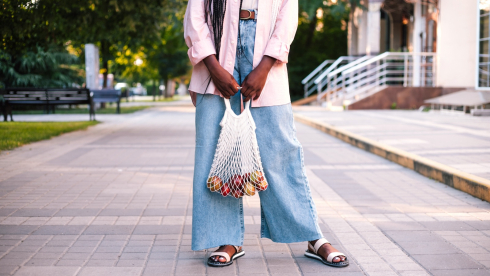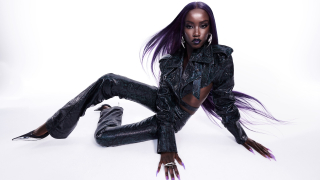I intended to write a funny story, with my typical “the children will lead us” storyline about the ways that my daughter practices the principles of Kwanzaa in her daily life. But here’s the truth: she doesn’t. Many of the principles are antithetical to her toddler embrace of the id. Kujichagulia (Self-Determination) could be her middle name, but then she would change it at will and expect me to follow suit. And that’s where her devotion to the principles ends.
Would you like to see the antithesis of Umoja (unity)? Give a group of toddlers one blanket and see what they do. You’d be surprised by all the things they don’t create between their disputes over the rightful blanket owner.
If Christmas is for the children, Kwanzaa is for the elders. Community is a concept that must be modeled; it doesn’t come naturally, especially in this culture of me and mine. I am supposed to teach my daughter the principles of Kwanzaa, to celebrate the wonder of ourselves when we were never meant to survive. But here’s another sobering truth: I don’t know them.
I used to know the seven principles by heart. More than that, I used understand how I could live them. When I was ten, my mother religiously took me to the nearby Black Cultural Center where a woman who named herself after the leader of the 1900 Ashanti rebellion, Nana Yaa Asantewa, told Anansi the Spider stories, helped us craft, and taught us the Nguzo Saba. We called her Mama Yaa.
“This is a bright girl,” Mama Yaa told my mother when I’d memorized all of the principles by the second week. “She will go very far.”
Mama Yaa, I’ve gone too far. Mine is a life without elders and I believe I’ve lost my way. Please forgive me; I’ve been trained to criticize, to use the word “problematic” with impunity, to be cynical about survival and certain only of unbelief. When you were my teacher, there were no grades and few chairs. We learned at your feet and you taught us to trust our own creative and critical faculties. You taught us to remember. This is more than nostalgia, Mama Yaa. Please refresh my memory.
The basis of the seven principles seems to be the belief that there is a community to be sustained. Can you remind me who my community is? Who are my people? Where? Can you re-teach me how to do community instead of searching for it? Can you teach me how to return to the circle, how to participate in the cipher even when my voice breaks with tears?
Can you tell me what happens to self-determination if your definition of self is never recognized? Can you teach me how to walk under a sign? Can you tell me if a Black girl makes a sound if there is no one in the forest to hear her fall?
Mama Yaa, are you ever drained from collective work and responsibility? Can you show me how to hold the problems of others and trust others to hold my own? Can you tell me what to do when a collective becomes a club, when responsibility is delegated rather than felt? Can you lead me away from alone, the place I go when I’m afraid?
When you show me my community, can you teach me how to use my resources to sustain it? Can you teach me to restore with purpose? Please remind me of the healing power of art, of my responsibility to do more than navel gaze.
Finally, Mama Yaa, do you have a cure for cynicism? I come from mustard seed people, but I’ve tossed mine away with my pictures of colonial Jesus. I miss believing in something. I miss the spirit world. I miss teachers, leaders, and the collective “our.” I miss knowing that I know nothing. I miss the things I never saw but believed were there.
A friend of mine recently reminded me of the powerful image of a Black woman with a baby on her hip. It reminded me of my daughter, who raises her arms to me sometimes and simply says, “Up.” Although she usually prefers to walk by herself, there are precious few times that she asks for my hip and reminds me of the days when love was carrying someone other than myself. Mama Yaa and other elders with whom I’ve lost touch, I need you again. I know that my questions are trite—that the answers are keystrokes away. But I’m tired. I’m drained. I miss your perspective. I am asking you to hold my hand and show me how to light the candles again. I am asking for your hip. Up.
Asha French is a writer and mother living in Atlanta. Tweet her: @afrenchwriter












